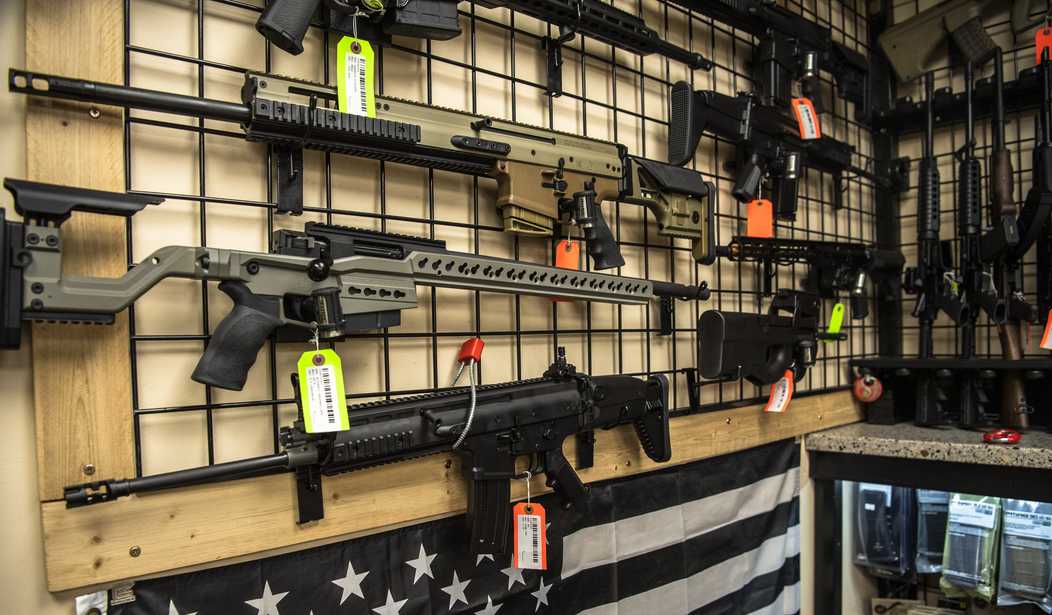Massachusetts' latest gun controls are already facing one court challenge focusing on the new training mandates for gun owners, but now a second lawsuit has been filed; this one taking on the state's expanded ban on "assault weapons" that are a part of Chapter 135.
The newest complaint was filed by Gino Recchia, the owner of Mass Armament, who argues the new law's voluminous prohibitions on both modern sporting rifles and "large capacity" magazines are an egregious violation of the right to keep and bear arms... and one that threatens the very existence of gun shops across the state, including his own.
Business at Mass Armament “is, and has been built up, centered around firearms and large-capacity magazines banned by the act,” the complaint said, estimating that about 70 percent of the shop’s business will be lost under the new limitations.
It’s the second lawsuit filed in recent months opposing the major new law that Governor Maura Healey signed in July, which seeks to crack down on untraceable “ghost guns,” prohibits firearms in some public places, expands the state’s “red flag” law that allows authorities to remove firearms from someone deemed to be a threat to themselves or others, and more.
Another group of residents and the Gun Owners Action League sued on Aug. 1, focusing their complaint largely on the overhaul of gun licensing requirements. The law requires Massachusetts residents to obtain a firearms safety certificate, which involves completion of live-fire training, to secure a license to carry.
Plaintiffs in that case alleged the new training requirements “are impossible to meet at the present time,” arguing that no such live-fire training courses existed and no regulations had been promulgated.
As the Boston Globe points out, the state legislature quietly pushed back implementing those new training requirements for 18 months by amending Chapter 135 in an unrelated budget bill last month. It's one of many ad hoc changes Democrats have made to Chapter 135 since it was signed into law by Gov. Maura Healey in late July. Most recently Healey attached an emergency preamble to the bill, putting into effect immediately in order to keep the law in effect while it's subject to a voter referendum.
But even though Chapter 135 is now officially in effect, state agencies are still picking and choosing what aspects of the law will be enforced. As Cape Gun Works owner Toby Leary informed Bearing Arms last week, the Massachusetts State Police sent out a notice to FFLs right after Healey signed the emergency preamble telling them they can still sell some firearms that aren't on the state's approved roster until further notice, so long as they don't include those "scary" semi-automatic rifles prohibited by Chapter 135.
Leary says Massachusetts is now the "state of confusion" thanks to Healey's "emergency" edict and the selective enforcement it has wrought. And while Attorney General Andrea Campbell is hoping that the delayed training mandate will make the first lawsuit filed against Chapter 135 moot, Second Amendment advocates aren't throwing in the towel or dismissing their complaint.
Campbell’s team on Friday asked a federal judge for about another month to produce a formal response to the lawsuit backed by the Gun Owners Action League, writing that attorneys need to work with plaintiffs to figure out how much of the complaint remains “operative” after the legislative action.
Jim Wallace, executive director of the Gun Owners Action League, said plaintiffs intend to keep their lawsuit active in the meantime.
“We need to make sure that regardless of suspending the new criteria, are the [police] chiefs recognizing that the old criteria are still in place?” he said. “It seems that [lawmakers] can change their mind at will with all of this stuff. It’s very important to keep the lawsuit in place because they may change their minds next week.”
The state might have delayed the training mandate and decided to ignore, for now, the fact that rifles and shotguns are technically forbidden for sale in Massachusetts because they are not included in the state's roster of approved firearms, but I doubt officials like Healey or Campbell are going to back down or revise their prohibition on so-called assault weapons in an attempt to weasel their way out of a lawsuit. Recchia's lawsuit should have some legs to it, and with the Supreme Court set to consider a challenge to Maryland's "assault weapon" ban later this fall, we might not have long to wait before bans on modern sporting rifles are ruled unconstitutional by the highest court in the land.









Join the conversation as a VIP Member